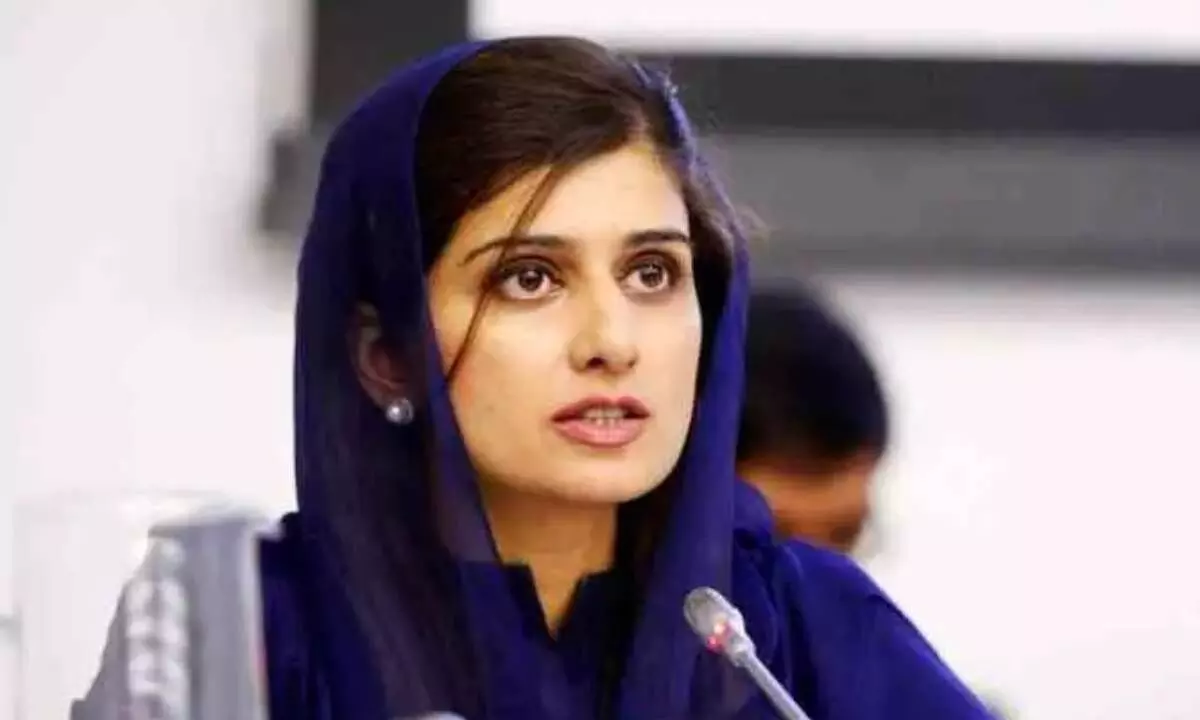Pak Minister’s ‘darling’remark signals diplomatic frustration
India’s strategic importance as the “Darling of the West” something Pakistan, a ‘pay-per-service provider,’ finds difficult to comprehend
image for illustrative purpose

Hina Rabbani Khar, Pakistan’s Deputy Foreign Minister, referred to India as the “Darling of West”, in her eagerness to taunt New Delhi. But what she forgot was that her country is a known concubine of the West. Hina Rabbani made the sarcastic remark about India while speaking at the Pakistan Governance Forum 2023 in Islamabad on 1 August. And within days, Islamabad approves a security pact with the US that will pave the way for accessing military hardware.
“The recent signing of the ‘Communication Interoperability and Security Memorandum of Agreement (CIS-MOA) between Pakistan and the US underscores the importance of Islamabad for Washington DC in its geopolitical objectives. The West’s reliance on Pakistan limits New Delhi’s strong stance against the nation, despite Rawalpindi GHq’s connection with fostering terrorism as a strategic tool.
Pakistan’s establishment has mastered the art of running with the West while it continues to hunt alongside terror organisations. In the past few weeks, Islamabad has got a lease of life both on the economic & diplomatic fronts; for instance, Saudi Arabia’s commitment to invest $10 billion in constructing Pakistan’s largest oil refinery at Gwadar Port in Balochistan has provided a significant economic lifeline. Additionally, the renewal of the CIS-MOA has offered a diplomatic subsidy.
Indeed, having a nuclear-armed neighbouring nation in a perpetual state of chaos is not in India’s best interest. However, the reluctance to impose penalties for its misadventures may embolden that nation to engage in more significant acts of aggression or misconduct. A firm and consistent approach to addressing such issues is essential to maintain regional stability and deter further escalations.
The strategic importance India holds as the “Darling of the West” is something Pakistan, a ‘pay-per-service provider,’ finds difficult to comprehend. International relations often operate within informal leagues, and countries are included based on their contributions and significance on the global stage. India’s inclusion in the Minerals Security Partnership (MSP), a US-led alliance of 14 developed countries grouping, is a testament to New Delhi’s growing influence and importance in global minerals security. This recognition of Bharat’s role further highlights its position as a key player in the international arena, surpassing China, which is not part of the exclusive MSP partnership.
However, historically, the United States, in particular, and the West, in general, have had complex relationships with Pakistan in the context of Afghanistan. Pakistan was seen as a key player due to its proximity to the Taliban and various terror fractions that could rein in the terror groups. In the past, the US expected Pakistan to exert influence on the Taliban, encouraging them to shun violence to support stability in Afghanistan; it, on the contrary, provided support to extremist groups.
It’s important to note that geopolitics and international relations are multi-faceted and often involve a range of factors and motivations. So, the question to ask is, what value add does Pakistan bring to the US?
So, some of the possibilities to ponder are; does the US still feel Islamabad can play a role in Afghanistan? Can or will Pakistan’s establishment exert pressure on the Taliban, given its proximity to the terrorist organisations?
There are over 30,000 “madrassas” in Pakistan that churn around 2.5 million youth, which can be brainwashed into another holy Jihad. So, can Pakistan again become a recruitment ground for Jihads for the next war against a bigger communist nation?
Exactly, the saying “OontKisKaravatBaithatahai” in Hindi emphasises the uncertainty and unpredictability of geopolitical situations and diplomatic relations. It suggests that just like a camel, which can sit on either side, diplomatic outcomes can be influenced by multiple factors, and the final result may not be evident until events unfold over time.
In international relations, countries often manoeuvre and adopt different positions based on their interests, alliances, and changing circumstances. The outcomes of diplomatic dances and geopolitical interactions can be influenced by countless variables, making it challenging to predict definitive outcomes.
For now - Bharat will continue to enjoy special attention from across the globe based on its merits and the potential to contribute to world’sgood, both economically and diplomatically. In contrast, the ‘Mistress’ of the world will continue to offer various pay-per-service options.
(The author is Founder of My Startup TV)

